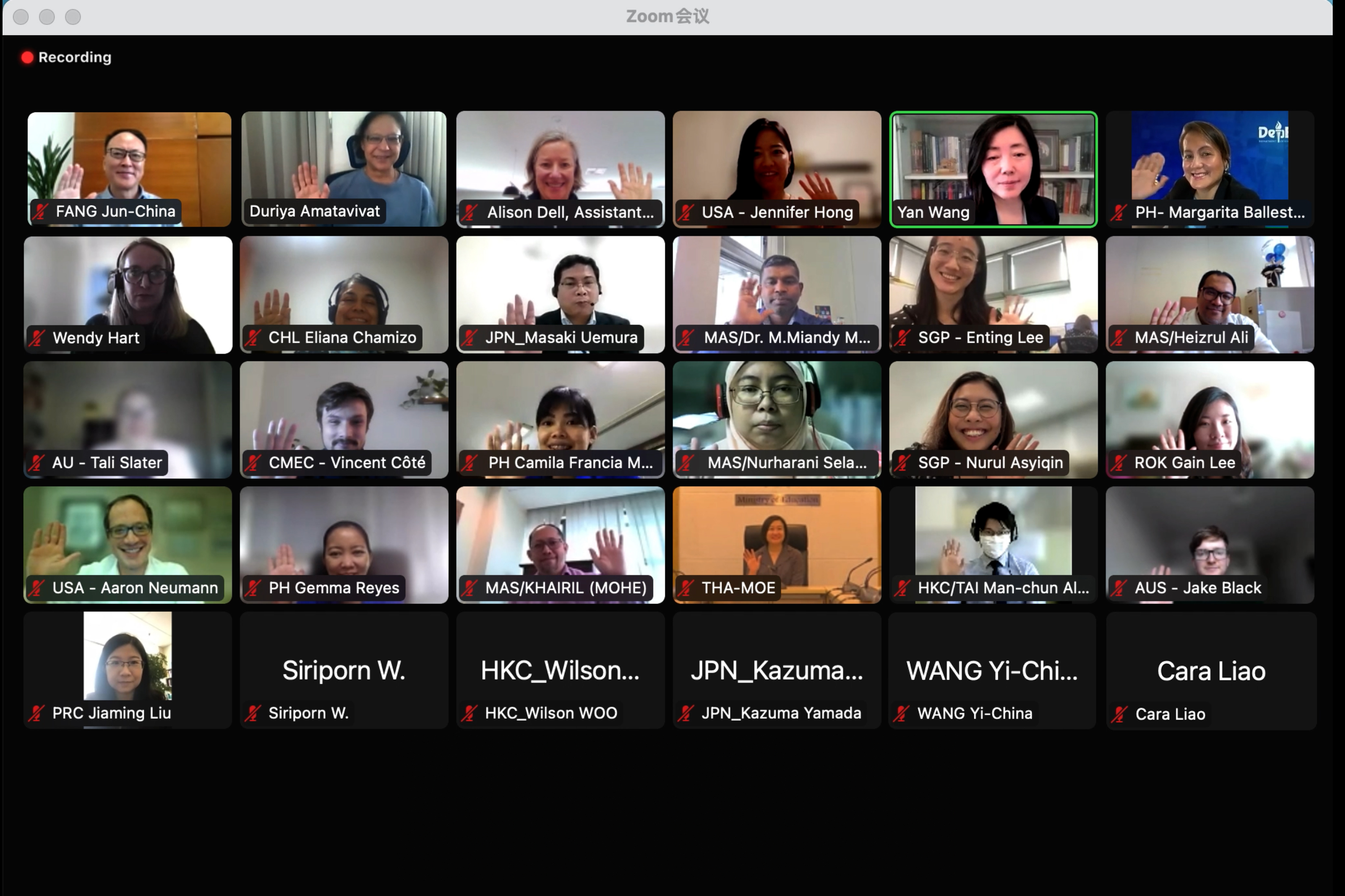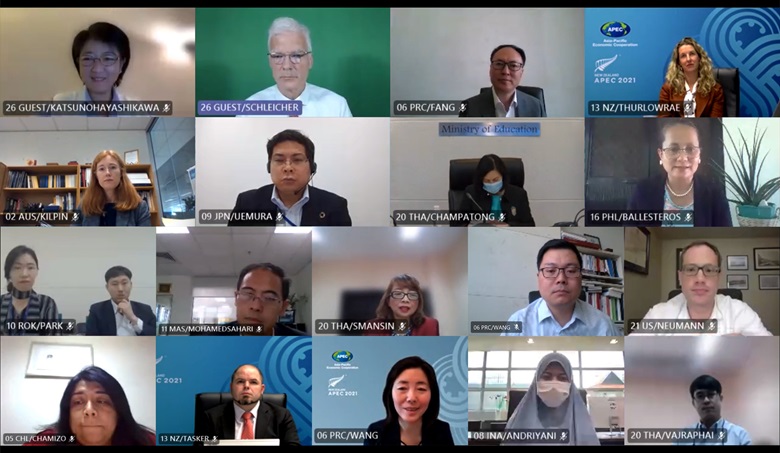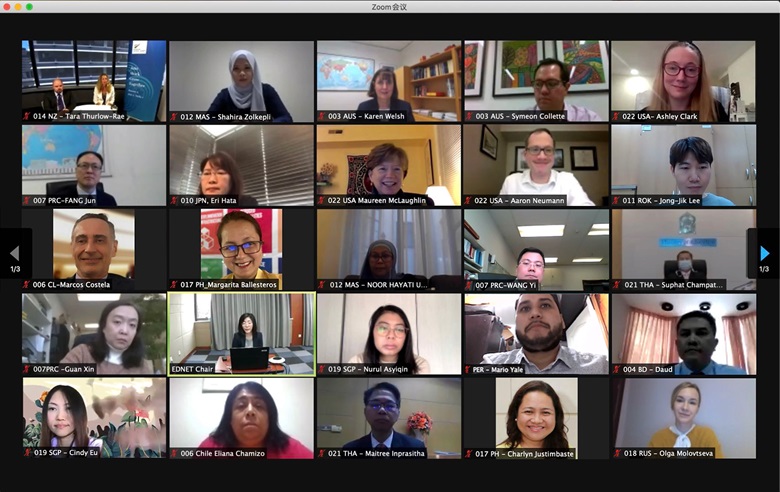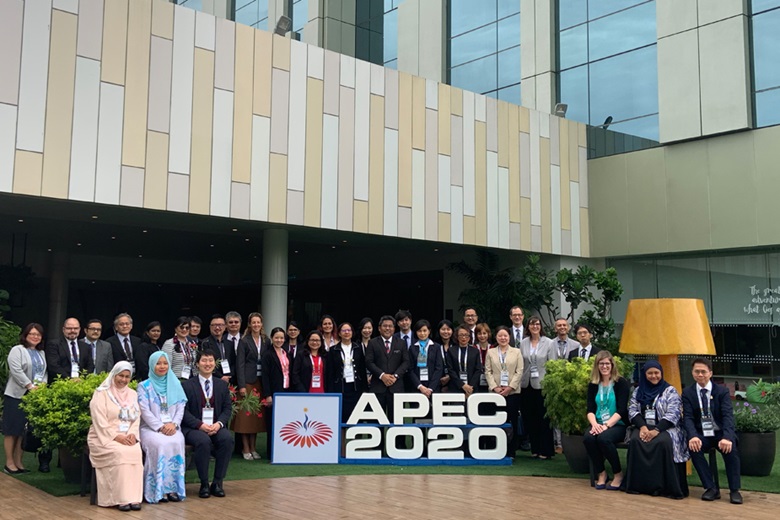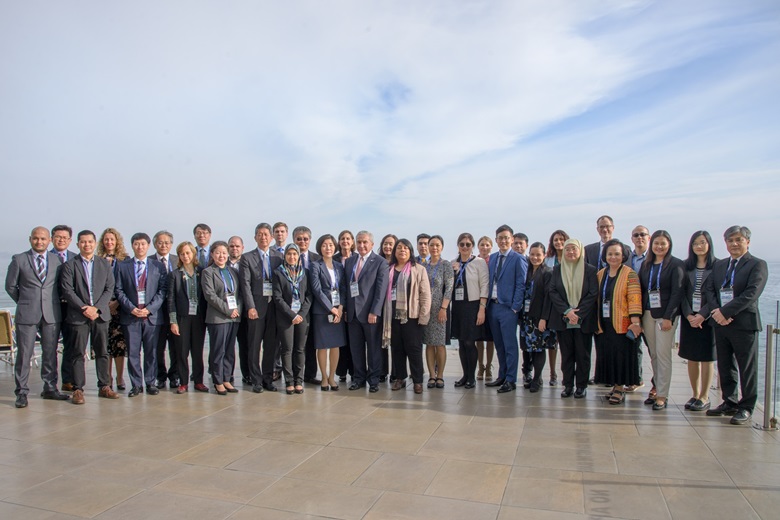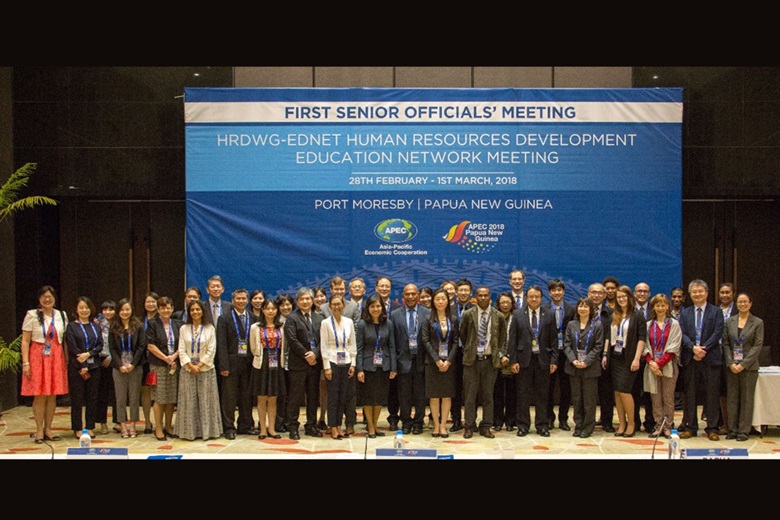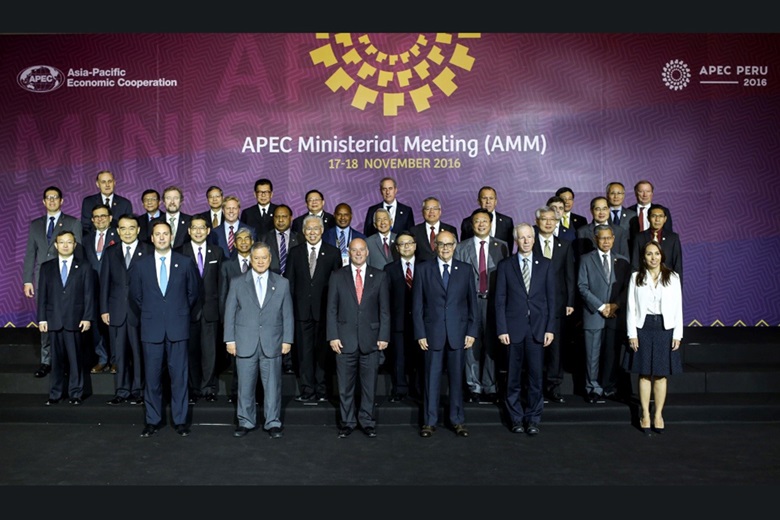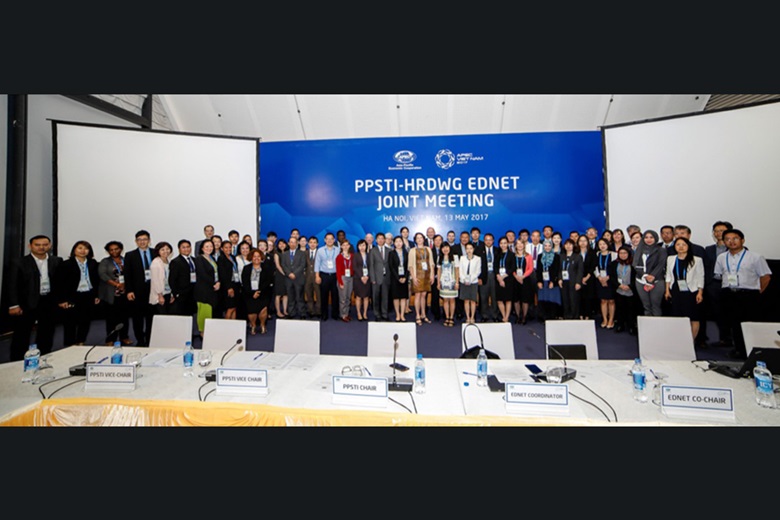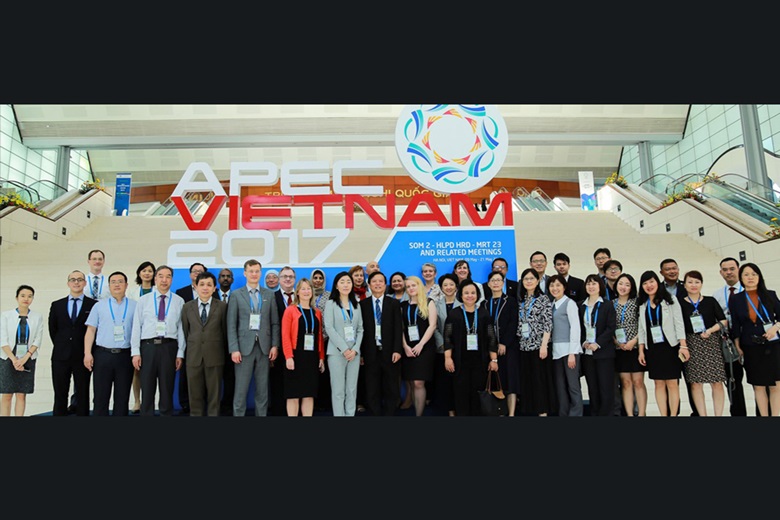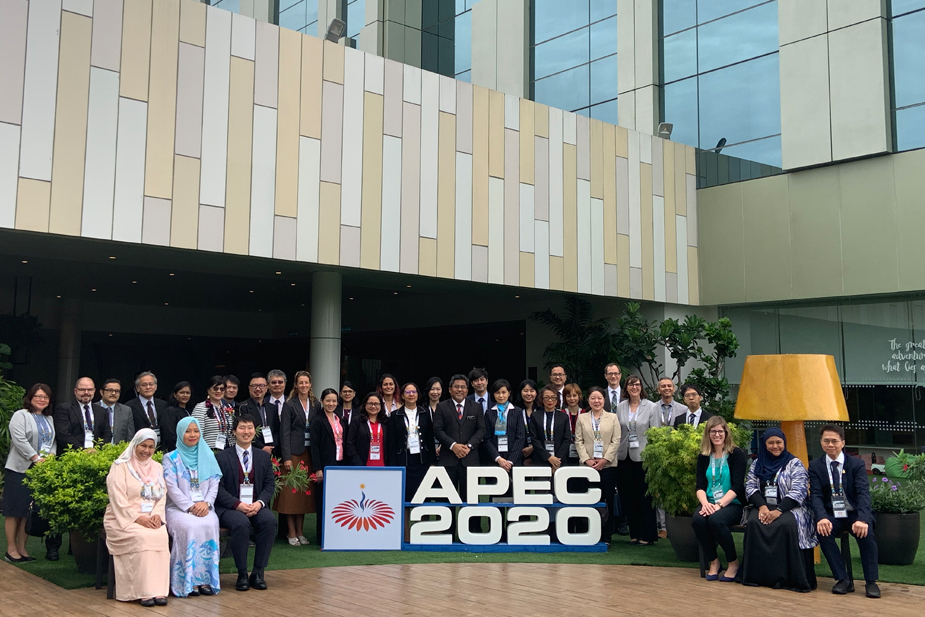
Putrajaya, Malaysia, 10-11 February 2020
Delegates from 11 APEC member economies – Australia; Japan; Korea; Malaysia; New Zealand; Peru; the Philippines; Singapore; Chinese Taipei; Thailand and the United States – gathered in the Malaysian city of Putrajaya for the 37th APEC HRDWG Education Network Meeting on 10-11 February 2020. Two member economies, Chile and China, as well as EDNET Coordinator Dr. Wang Yan, took part remotely. The Meeting was also attended by representatives from UNICEF Malaysia and the SEAMEO Regional Centre for Special Educational Needs.
The Meeting was opened by its chair, Dato’ Kamel Mohamad, Deputy Secretary General of Malaysia’s Education Ministry. He was followed by Dr. Wang, who thanked the Malaysian government, as the 2020 APEC host, for convening the HRDWG EDNET Meeting, as well as the other APEC economies for their participation and support.
As last year’s host, Chile presented the “Outcomes of APEC 2019” and reiterated the importance of addressing STEM, APEC’s requirement for future skills and gender inequality in education. Malaysia presented its main deliverables, with respect to HRDWG and EDNET, on the education strategies for “Future of Works in the Digital Age” with an emphasis on sustainable society, the future workforce and cross-border education, all with the aim of driving inclusive growth across the APEC region.
Member economies deliberated “Case Studies Based on the Objectives and Priority Actions of APEC’s Education Strategy for Knowledge Sharing”. For instance, Malaysia shared information on the implementation of its digital learning platform, which offers multiple applications and services from key partners – namely Apple, Google and Microsoft. Australia and New Zealand introduced qualifications frameworks in their respective economies, the ASEAN Qualifications Reference Framework, qualifications recognition and employment, as well as looking at key challenges and the way forward. New Zealand also reported on its vocational education reform, which focuses on efforts to integrate different vocational education systems, uphold and enhance the Māori-Crown partnerships, and minimize transition and uncertainty for stakeholders and the government.
Two completed, 11 ongoing and four newly-proposed projects were presented by member economies at the Meeting. Malaysia presented its #mydigitalmaker APEC Tech Talent Development Programme, a project that the APEC Secretariat is currently considering after succeeding in getting co-sponsorship in 2019. New Zealand and Korea presented newly-proposed projects – the former’s was entitled “Wellbeing in the Digital Age: Phase I” and the latter’s “APEC School Leadership Project”. Meanwhile, Chinese Taipei also presented a newly-proposed project – “Strengthening Sports Talents Cultivation in the Digital Economy” aims to promote talent cultivation through sports technology by improving employment for sports talent using Public-Private Partnerships.
To assess the progress of the APEC Education Strategy, delegates also discussed the planning of the “Progress Report of Implementing APEC Education Strategy and its Action Plan” as well as updating the “Baseline Report on Current Education Status in the Asia-Pacific Region”.
UNICEF Malaysia and SEAMEO SEN explained how they were collaborating with Malaysia’s Ministry of Education and presented proposals for collaboration with the APEC economies.
The Meeting was concluded with closing remarks by Dr. Wang Yan. The EDNET coordinator thanked Malaysia for chairing and organizing the Meeting, as well as the delegates for their participation. She also emphasized the importance of innovation when facing challenges in a rapidly changing world, both now and in the future.
The Meeting was seen as an invaluable opportunity for delegates to assess progress and future undertakings, so as to strengthen education structures across the APEC region.



